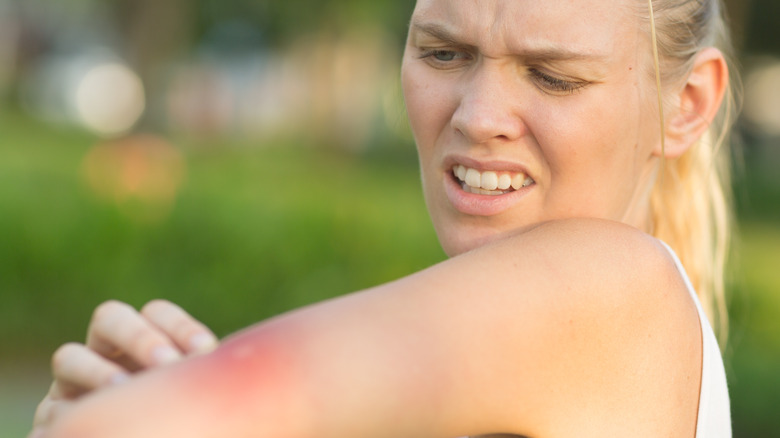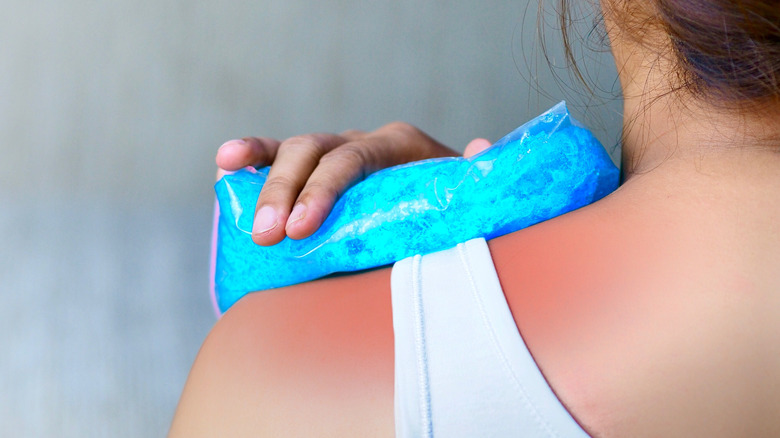What Happens To Your Body When You Get A Wasp Sting
Most of us have experienced the pain of a wasp sting, especially during the summer months. While other insect bites often cause discomfort, wasp stings can be particularly painful and irritating (via Healthline). That's because wasps inject venom into your skin when they sting you, and unlike honeybees, wasps don't lose their stingers when they sting. Unfortunately, this means that wasps can potentially sting you several times in a row.
If you get stung by a wasp, you'll likely feel pain or burning near the sting site. It's also common to experience redness, itching, and swelling around the area. Although most people will recover from a wasp sting within a few hours after getting stung, some people will experience an allergic reaction, or anaphylaxis, which can be life-threatening.
Anaphylaxis can occur within minutes of being exposed to an allergen, including wasp venom. Symptoms of an allergic reaction include hives, itching, swelling of the face, throat, or lips, trouble breathing, lightheadedness, diarrhea, nausea or vomiting, and a sudden drop in blood pressure. If you experience any of these symptoms, you should seek immediate medical attention.
How to treat a wasp sting
If you've been stung by a wasp and are not experiencing an allergic reaction, you can treat your sting at home with a few simple remedies. Before you do anything to alleviate the pain, however, you'll need to clean and disinfect the affected area first (via WebMD). Wash the sting site with soap and water to get rid of any germs or bacteria that could lead to infection. After that, you can apply an ice pack to the affected area every ten minutes over the course of an hour to help lessen inflammation.
You can also take over-the-counter anti-inflammatory medications, like ibuprofen or naproxen, to help ease the pain of the sting. If your sting is particularly itchy, you can apply an antihistamine, corticosteroid, or calamine cream to the sting site and surrounding area to help alleviate any pain, itchiness, and irritation. Overall, pain from a wasp sting should subside within a day or so. However, if you experience worsening symptoms over the course of several days, that could be an indication of possible infection, and you will want to see a doctor for further treatment instruction.


